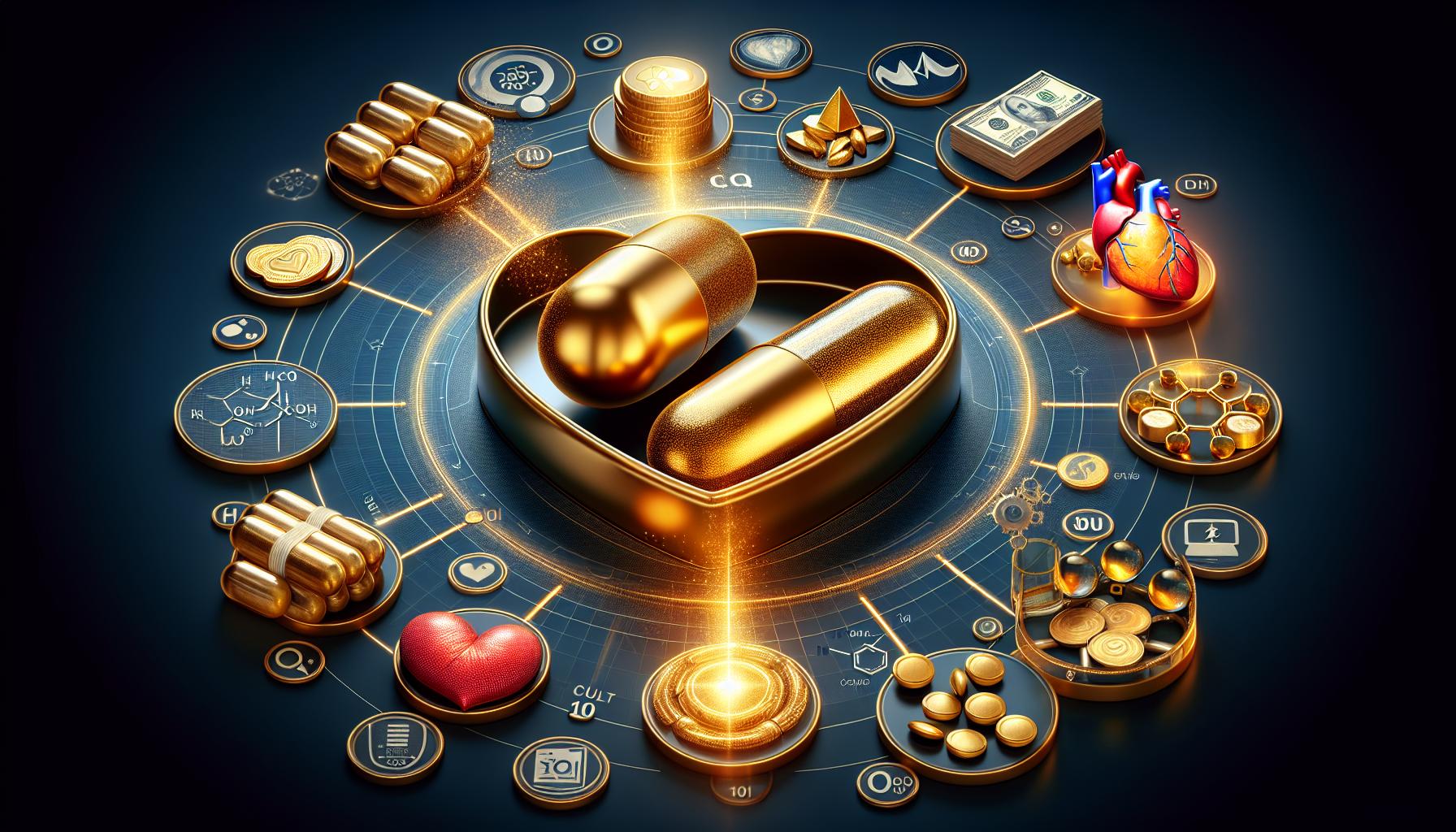
Welcome to the World of Wellness
Ever wondered why ubiquinol, a potent form of the popular supplement CoQ10, piques the price range? Your inquiry echoes in the minds of many thriving on an improved health journey. Simply put, the high cost comes from its intrinsic characteristics, from being difficult to extract to having heightened bioavailability. We’ll provide a roadmap to understanding ubiquinol’s price, highlighting the production process, absorption level, quality assurance, research, and development cost, and the brand factor. Hang tight as we dive deeper into the ‘quality-price’ conundrum.
Extracting the Hidden Goodness – The Ubiquinol Production Process
Ubiquinol production isn’t a walk in the park. A three-stage process – fermentation, extraction, and formulation – intertwines science, precision, and a generous dose of meticulous attention. Initial stages typically involve hard-to-ferment elements such as yeast cells, demanding a notable portion of the production cost.
Digesting the Distance – Ubiquinol’s Bioavailability
Next stop on our trek to understanding ubiquinol’s price point is tasting its bioavailability – how much of the supplement can effectively reach your bloodstream. Ubiquinol, the ‘ready-infused’ sibling of ubiquinone or coenzyme Q10, doesn’t require conversion in the body, making it more bioavailable and thus more expensive.
The Assurance of Quality – Driving Up the Price
Quality, like a loyal friend, sticks through thick and thin. Manufacturers aiming for high-quality ubiquinol ensure their products meet noteworthy standards. This includes rigorous testing for purity and potency, packaging in soft gels to shield from light and moisture, and crafting in certified facilities. These extra measures stack up, making for an impactful contribution to the price tag.
Consumers Say Yes – High Demand Tips the Scale
High demand also plays a part in ubiquinol’s lofty price point. As more consumers uncover the benefits of this supplement, demand escalates and scarcity drives prices up.
Behind Closed Doors – The Cost of Research and Development
The story of ubiquinol’s price can’t be completed without mentioning the cost of continuous research and development. Significant investments in clinical trials, ensuring safety and determining beneficial dosing, resultantly hikes up the price.
Brand Power - A Pricy but Trustworthy Tag
Last, but certainly not least, the brand factor magnifies ubiquinol’s price point. Renowned brands often signify trust, credibility, and quality, giving consumers the confidence to invest a bit more for a beneficial return.
Wrapping It Up
Ultimately, ubiquinol’s price is on the higher side because you’re truly paying for the crème de la crème of CoQ10. From intricate production to bioavailability, quality assurance, demand, and the brand factor, every element justifies its cost. By investing in ubiquinol, you’re investing in your health, which, let’s face it, is a priceless endeavor.
Frequently Asked Questions
1. Why is Ubiquinol better than CoQ10?
Ubiquinol is more bioavailable than CoQ10, meaning the body can use it more effectively, hence considered better.
2. How can I make ubiquinol more affordable?
Consider bulk buying or availing discounts and promotional offers from reputed brands.
3. Can I buy ubiquinol over the counter?
Yes, ubiquinol is generally available over the counter without a prescription.
4. How long should I take ubiquinol?
Ubiquinol can be taken on a long-term basis for preventive health care, but check with your healthcare provider to determine the right dosage and duration for you.
5. Are there any side effects of taking ubiquinol?
Ubiquinol is usually well-tolerated but may cause mild side effects like nausea or digestive discomfort. Always consult your healthcare provider before starting any supplement regimen.



